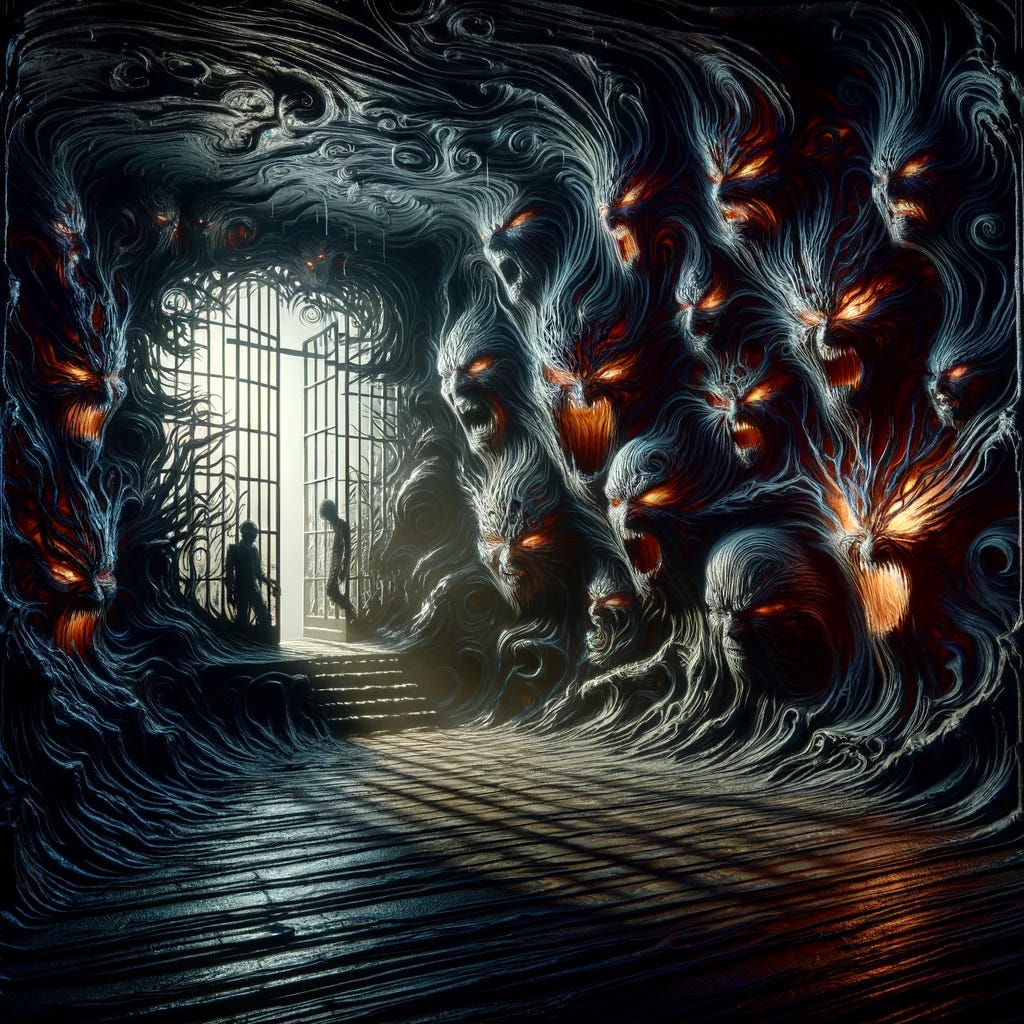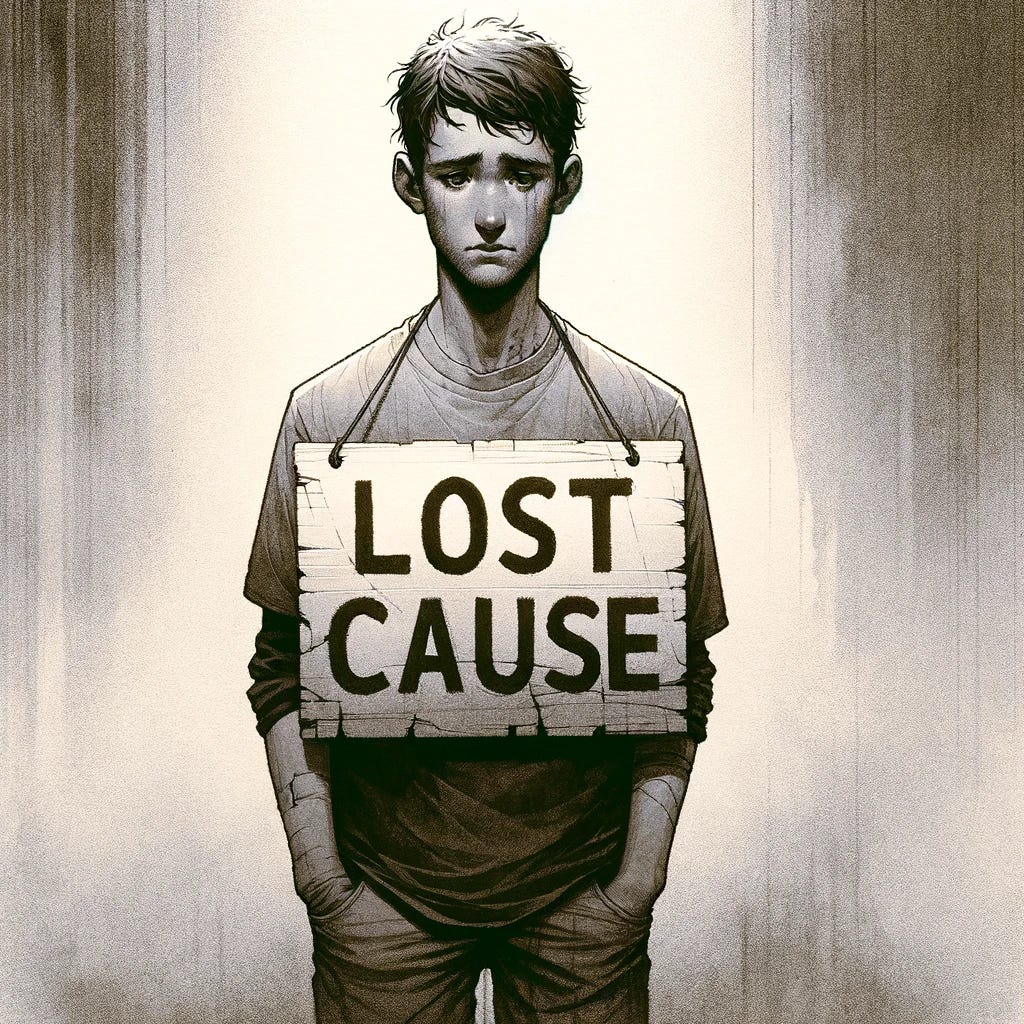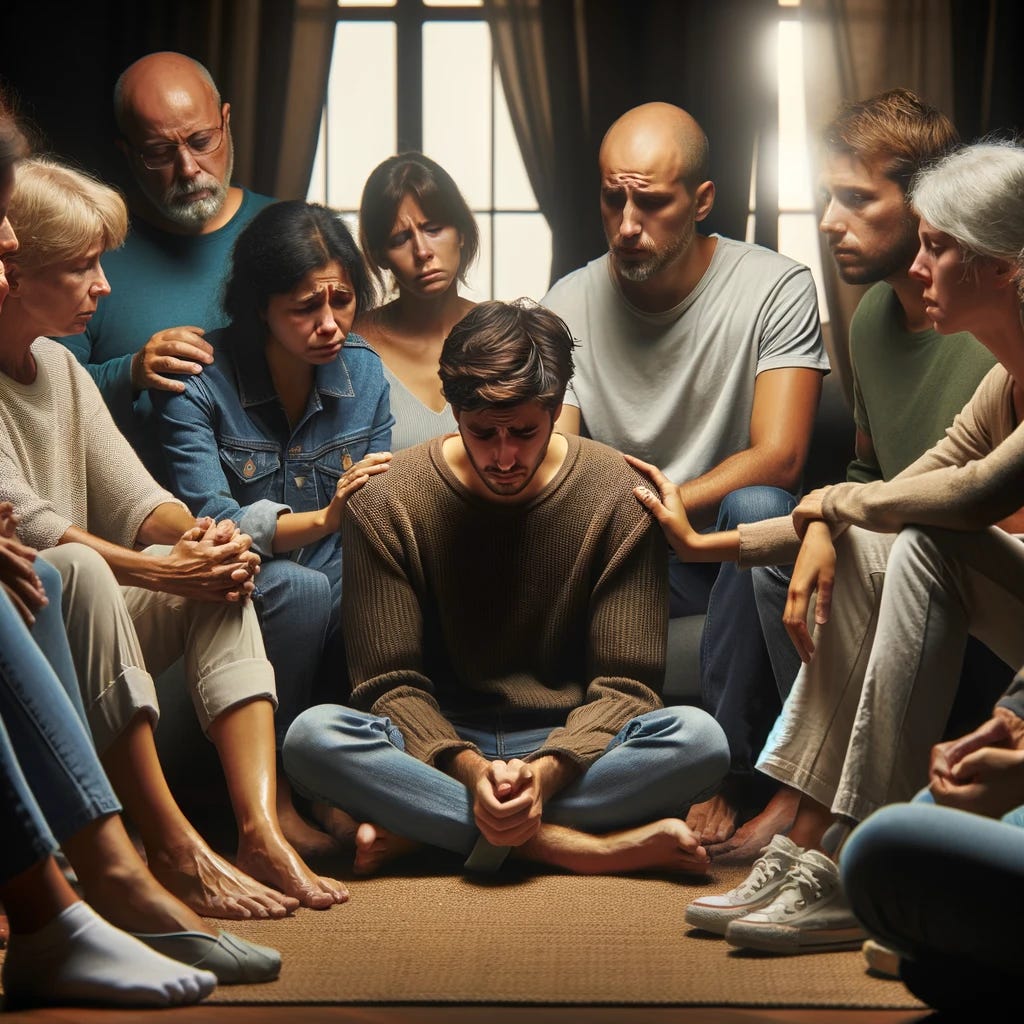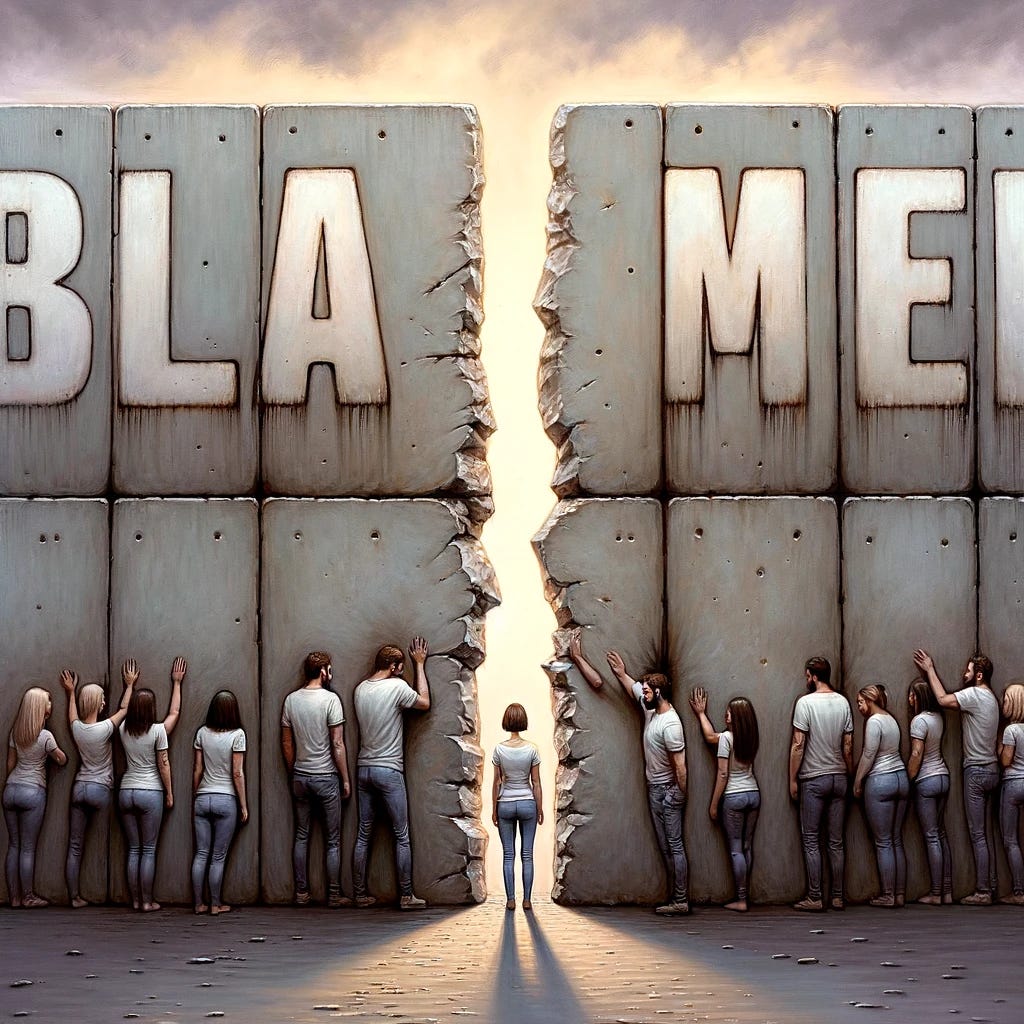Forgiveness: Choosing to Overcome Anger and Resentment
Feeling angry or resentful is a decision one makes, and individuals can use particular techniques to aid in their forgiveness.
Hatred never ceases through hatred, but through love alone is healed.
This is an eternal law.
The Buddha
When we interact with other people, we judge our experiences with them as pleasant, unpleasant, or neutral.
The people we judge to be pleasant and agreeable become friends and lovers.
The people who we find neutral fade from our minds.
The people we judge to be unpleasant and negative become enemies who are put into the mental dungeons in our minds.
The categories are flexible, and people move in and out of favor, but once they are thrown into our dungeons, it becomes difficult for them to escape.
Anger creates the dungeons in our minds. The bars enclosing our enemies there are made solid by resentment, the act of keeping anger alive by not forgetting our anger and not forgiving our enemies.
If we sustain anger without forgetting it, we can enclose our enemies for as long as we live. However, sustaining anger, hatred, and resentment requires paying a large emotional toll.
Anger is an unpleasant mental state of mind and body. The dungeons of resentment require sustaining anger, so the presence of these enemies will always disrupt one’s peace of mind.
Each person desiring peace of mind must release their enemies through acts of forgiveness. Once released, the dungeons of anger and resentment can be shut down, and the negative energy no longer burdens our minds and no longer weighs down our hearts.
Your enemy’s foibles
People often do horrible things to other people, usually for selfish ends. Your enemies undoubtedly harmed you in some way, real or imagined.
Some people create enemies from harm they only imagine.
Have you ever made a love interest into an enemy simply because they spurned your advances? I have.
I was a selfish ass, yet I convinced myself I was a victim and made my love interest into an enemy merely for failing to fulfill my desires. My emotional trauma was entirely created in my own mind.
Even if the harm is real, the mind will often add to the harm by creating a victim story, an interpretation of the transgression that makes it far worse.
For example, if a drug addict beats you and robs you to get money to purchase drugs, that is a terrible injustice, and you bear pain from the beating and the recovery.
However, it’s your interpretation of the event after the fact that becomes the main source of suffering that you must endure.
You could reason that the drug addict is suffering from his addiction, and decide to feel compassion for his plight and forgive him for what he did to you. Such an attitude would minimize your suffering after the fact.
Most people don’t attempt to minimize their anger through understanding and compassion. Instead, they create a victim story, and cast themselves as a victim and their enemy as a perpetrator.
Creating a Victim Story
An angry mind will meditate on some harmful event, spurred on by the pain. The traumatic episode becomes a narrative, a story to provide character and context to make it easier to remember and tell others.
“My enemy did [insert your trauma here].”
You impugn your enemy’s motives.
“My enemy was terrible because [insert your nefarious reasons here].”
You create negative characterizations of your enemy.
“My enemy is an awful person because [insert your list of flaws here].”
You want to see great harm befall your enemy and revel in your revenge.
“My enemy deserves punishment and retribution because [insert your justifications and rationalizations here].”
You might even get others to agree with all your points. Your enemy may even be in jail, found guilty by a jury of his or her peers.
No matter how justified your victim story is, if you cling to it, you will suffer.
It’s really that simple.
Nobody chooses this for you.
And nobody can prevent you from remaining angry for as long as you want—and want to suffer the pain of your own anger.
Perhaps you believe your anger causes your enemy to suffer. If your enemy is a loved one, that may be true, but mostly your enemies don’t know you are angry, and even if they did know, they either wouldn’t care, or they might actually delight in your suffering.
Anger, Resentment, Spite, and Retaliation
The following is adapted from How to Solve Our Human Problems by Geshe Kelsang Gyatso.
Anger is a disturbed mind that identifies an animate or inanimate object, finds it unattractive, exaggerates its bad qualities, and wishes to harm it.
You’ve identified your enemy as the problem.
You don’t want to be around your enemy, so you find them unattractive.
You focus exclusively on what you perceive as your enemy’s bad traits and qualities. If you know little or nothing about your enemy, you will imagine the worst and assume it’s God’s Truth.
You feel your enemy deserves the emotional pain you imagine your negativity inflicts upon them. You wish bad things were to happen to your enemy because you feel he or she deserves it.
You are angry at your enemy.
Spite is when anger has hardened into resentment, and the person wishes to speak harshly.
Do you speak harshly about your enemy to others? Is your spite an admirable trait?
Resentment is formed when anger is sustained without forgetting it.
You resent your enemy. If you didn’t form the resentment, they wouldn’t be your enemy.
If resentment is sustained for long periods, the desire to retaliate arises.
Anger and resentment prompt people to retaliate against those perceived to be the cause of harm; in your case, you want to hurt your enemy.
The desire to retaliate often causes people to expose themselves to unnecessary troubles merely for petty revenge.
Have you done anything to get back at your enemy? Do you want to? Do you feel good about that?
Have you ever been the victim of retaliation from someone who was offended by your actions? Did you deserve it, or did your enemy’s retaliation contribute to your victim story?
Anger is Destructive
Anger makes everyone afflicted engage in bad actions that lead to untold suffering, while blocking any progress on the path to spiritual liberation, leading to unhappiness or depression.
Anger is a painful state of mind that makes everyone tense and uncomfortable.
Anger makes it difficult to sleep, and even when sleep comes, it isn’t restful or refreshing.
Anger makes it difficult to enjoy activities, other than cruelty, inflicting pain on your enemy for its own delight.
Anger motivates action without deliberation, causing people to lose their freedom of choice, driven to action without concern for consequence.
Angry people often die alone because they make enemies of everyone, and push away everyone who is close to them.
Put out the fire of anger when it’s a spark
Buddhist practitioners learn the value of squelching anger at the earliest possible moment before it becomes a raging fire.
Watch your mind. As soon as it becomes disturbed, you should remind yourself of the many faults of anger as described above.
Whenever you start ruminating on your enemy’s faults and blaming him or her for your problems, you should remember that fault-finding, blaming, and anger only create more suffering for yourself and those around you.
Rage and Aggression
Anger is like fire. It starts as a spark, and if fed with confirming thoughts, and given enough time, it grows into an inferno.
Anger becomes rage, and like large fires in nature, it can grow out of control and consume everything and everyone in its path, starting with you.
Rage is uncontrolled anger. Aggression is an increase in anger that motivates the desire to harm others either physically or verbally. Rage and aggression lead to violence.
How far are you willing to let your anger go?
Do you like the portrait of who you have become due to your anger against your enemy?
Maybe you hide it well on the outside but on the inside…
Perhaps it’s time for a change, don’t you think?
How to forgive your enemy
To forgive your enemy, you must want to. You must see some advantage in it.
The last several sections of this writing were intended to provide you with motivation in that regard.
If you still don’t want to forgive your enemy, I suggest you read it again.
If you wish to burn your insides in the fire of anger until you embody the evil you detest, then that is your choice.
You have become your own enemy.
Stop reading here.
Stop feeding the anger beast
The first step is to stop adding to your anger and resentment by reminding yourself of all the things you perceive wrong with your enemy.
Stop telling yourself your victim story. If you do tell yourself your victim story, don’t blindly agree with it and reinforce its certainty.
Have you shared your victim story with countless others to get them to agree with it?
Do you believe that God accepts your victim story as Gospel Truth? Does He support your righteous anger?
The more certain you are in your victim story, your negative interpretation of events, and your negative characterizations of your enemy, the more difficult it is to overcome.
You must undermine the certainty of your victim story.
How to let go of your victim story
You don’t need to forget what happened, though it’s often better not to recall your pain and traumatize yourself over and over again.
You don’t need to expose yourself to your enemy in a way that opens you to further abuse or victimization.
You don’t forgive and forget; you forgive and protect.
Forgiveness heals your heart, and self-protection shields you from further harm. That’s wisdom.
To undermine your victim story, you need to find different, less negative interpretations of what happened to you.
Consider the beliefs about your enemy and ask questions like:
“Is there another way to view the situation?” There is always another way to interpret what happened. Your current interpretation is likely the most negative one possible. You can feel compassion for your enemy, recognizing they are suffering due to their selfishness and bad behavior.
“Is my belief a fact, or just my opinion?” Recognize that it’s an opinion, something you can change. If you are certain your negative view of your enemy is an absolute fact with no other interpretation, there is no hope of change.
“Even if that’s true, is it worth the pain I cause myself?” Recognize that it is not. If you were the hapless victim of another person with no convincing way to feel any personal responsibility, you can still defuse your anger by recognizing that maintaining that anger only hurts you. The person you are angry at does not feel your pain.
“What would my enemy’s point of view be?” Have you ever pondered this? Most people don’t. They don’t want to. It’s one of the most effective ways of undermining anger, but angry people choose not to practice it.
Is your enemy reacting to your anger?
People commit to their victim stories and become entrenched in them. They cast themselves as completely blameless and their enemy as 100% responsible for what happened.
There certainly are circumstances where most of the responsibility is on the other party, but it’s also quite common, particularly with interpersonal relationships where two people become enemies, each reacting negatively to the other.
If your enemy is your spouse, you are not completely blameless, and insisting that you are blameless and innocent merely serves as a barrier to forgiveness or reconciliation.
Have you ever said something to your partner that they misunderstood and reacted to negatively? In that moment, your partner feels victimized, even if it’s a completely mistaken impression. If you then react in anger to their negativity, it starts a back-and-forth, tit-for-tat sequence of retaliations.
Those reactions generate anger and resentment and make your spouse or partner into an enemy.
Each of you feels completely blameless and justified in your anger toward the other. Even if you sort out that the original offending remark was completely mistaken, the angry retaliation that follows still damages the relationship.
If you fail to see your enemy’s point of view, especially if your enemy is actually your partner or spouse, then you will not forgive, and you will accumulate resentments until the relationship ends.
But the end of the relationship isn’t the end of the anger. Some people never forgive their former lovers, accumulating enemies they take with them to the grave.
A particularly effective method of forgiving a partner or spouse is to create a list of their good qualities. They must have some, or you wouldn’t have been attracted to them.
Create a list of your enemy’s good and admirable traits
Your enemies don’t have any admirable traits or redeeming qualities. They are awful to the core, the incarnation of evil, right?
Did I just read your mind?
Anger creates mental barriers to anything that extinguishes the flames.
Anger far prefers to go through the list of your enemy’s faults, the terrible things you blame him or her for, and anything else negative you can heap on them.
This is particularly easy if your enemy is your partner or spouse because you have a long history. There are always events one can look back on to support a negative characterization, even if it takes selectively remembering or misremembering the past.
Thoughts about your enemy’s good or admirable traits would be a wet blanket extinguishing the flame. But that’s what you need—and should be what you want.
Once you have your list, meditate on it. Keep the list handy, and read it multiple times per day, particularly if you feel anger toward them.
Add to it as you think of more admirable traits. Anything, no matter how small, is worthy of writing down and remembering—like you did with your list of their foibles.
Abandoning Partisan Political Anger
The last several years in America have seen increasingly deep divides between partisan political groups. Each group creates strongly negative characterizations of the other, constantly reinforced by their echo chambers of friends and news sources.
Would it be possible for you to create a list of the good and admirable traits of those on the other side?
We’re all Americans, right? Or has your partisan lens convinced you we don’t even share that anymore?
Can you create a list of the good and admirable traits of the leadership of the other side? Does Joe Biden have good qualities or traits? Does Donald Trump have good qualities or traits?
Your interpretation of the good or evil of the other side and their leadership is merely your opinion. No matter what it is, nearly 50% of your countrymen disagree.
God is not on your side. You are not the defender of freedom and truth. You are merely an angry partisan, suffering the pain of your anger and hatred.
Make anger your enemy
Since you have much anger inside you bottled up as resentment, you need to detach this anger from your enemy and direct it onto itself.
This way, you can fight fire with fire, setting a backfire in your heart to prevent further damage.
This has the side benefit of awakening the desire to rid yourself of the anger as quickly as possible.
If you ingested poison, you would act immediately to rid your body of it. The emotional poison of anger shouldn’t be treated any differently.
Cultivate a mind of patience
Emotional work takes time. Even if you go deep and sob from your depths, you won’t only cry once, not with your deepest pain.
You will feel sad and cry, then you will come out of it for a time—days, weeks, or months even—and then you will feel sad again and cry more.
If you cried constantly for days or weeks, you would become depressed and endure other problems.
Mourning and recovery from trauma takes time. How much? As much as it takes.
Patience is a mind that is able to accept whatever occurs fully and happily.
Patience is not bearing the pain with a feigned smile.
Patience means welcoming wholeheartedly whatever occurs without wanting things to be any different.
Nothing your enemy did is so bad that it can’t be accepted patiently, with an open, accommodating, and peaceful heart—despite the objections your mind is offering right now.
If you cultivate the mind of patience, your victim story won’t find a ready listener willing to agree with certainty that your enemy is terrible, an irredeemable ass who deserves to die.
When you think about it, you’ve already demonstrated tremendous patience—for sustaining the negative.
You’ve clung to your victim story for many years, with the clouds getting darker and darker, knowing full well you will sustain that negativity until you die.
You can cultivate a mind of patience for forgiveness as well.
It will take as long as it takes, but if you stay the course, the rewards will be a clear mind, a clean heart, and a happy life.





















